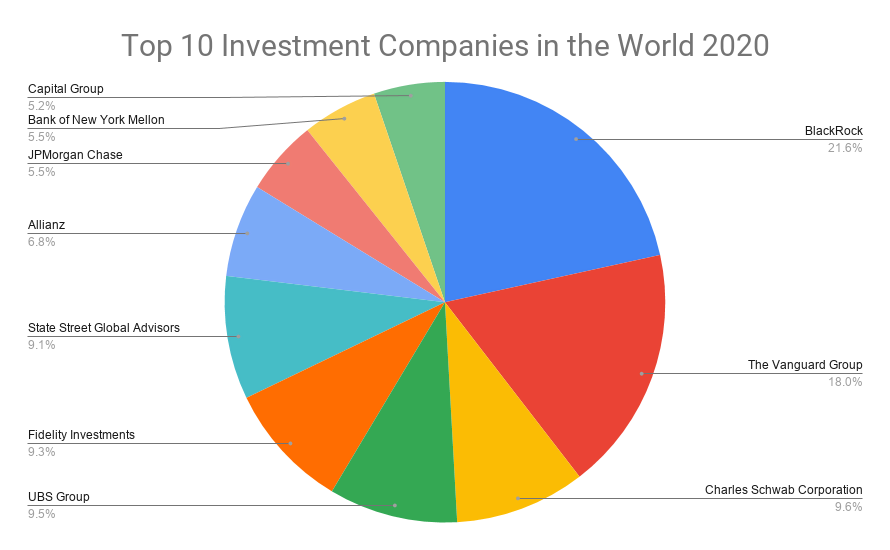Table of Contents
Financial institution An investment firm is a financial establishment principally participated in holding, taking care of and investing securities. These firms in the United States are managed by the U.S. Stocks and Exchange Payment and should be signed up under the Investment Firm Act of 1940. Investment firms invest cash on part of their clients that, in return, share in the earnings and losses.

Investment firm do not include brokerage firm companies, insurance provider, or financial institutions. In United States safeties policy, there are at the very least 5 kinds of investment firm: Generally, each of these investment firm have to register under the Securities Act of 1933 and the Investment Firm Act of 1940. A fourth and lesser-known kind of investment firm under the Investment Firm Act of 1940 is a Face-Amount Certificate Business.
A significant kind of business not covered under the Financial Investment Business Act 1940 is personal investment firm, which are merely exclusive firms that make investments in supplies or bonds, however are limited to under 250 financiers and are not managed by the SEC. These funds are often composed of extremely well-off financiers.
This gives particular defenses and oversight for financiers. Regulated funds usually have constraints on the kinds and quantities of investments the fund supervisor can make. Generally, managed funds may only buy provided protections and no greater than 5% of the fund might be bought a solitary protection. The majority of financial investment companies are shared funds, both in terms of number of funds and assets under management.
Investment Company
The initial financial investment trusts were established in Europe in the late 1700s by a Dutch investor that wished to enable little financiers to pool their funds and branch out. This is where the concept of investment firm come from, as mentioned by K. Geert Rouwenhorst. In the 1800s in England, "financial investment merging" arised with trusts that looked like modern-day mutual fund in structure.

The 1929 supply market crash and Terrific Anxiety temporarily hampered mutual fund. New safeties guidelines in the 1930s like the 1933 Stocks Act restored capitalist confidence. A variety of advancements then brought about steady growth in investment firm properties and accounts over the years. The Investment Firm Act of 1940 manages the framework and operations of investment firm.
In 1938, it authorized the development of self-regulatory companies like FINRA to supervise broker-dealers. The Securities Act of 1933 needs public protections offerings, including of investment firm shares, to be registered. It additionally mandates that financiers receive a present syllabus explaining the fund. "Investment Companies". U.S. Securities and Exchange Payment (SEC).
Investment Company servicing Round Rock
Lemke, Lins and Smith, Law of Financial Investment Business, 4.01 (Matthew Bender, 2016 ed.). ACM. 2023.
In retail mutual fund, hundreds of capitalists might be included through middlemans, and they might have little or no control of the fund's tasks or understanding concerning the identifications of various other capitalists. The possible number of financiers in a personal mutual fund is typically smaller sized than retail funds. Personal investment funds tend to target high-net-worth individuals, consisting of politically revealed persons, and fund managers might have a close relationship with their client financiers.

Passive funds have actually been growing in their market share, and in some jurisdictions they hold a considerable section of ownership in openly traded firms. There are various classifications for mutual fund. For example, some are closed-end, implying they have a set number of shares or funding, whilst others are open-end, meaning they can become unlimited shares or funding.
The rates, risk, and regards to by-products are based upon a hidden possession, and they enable financiers to hedge a position, rise leverage, or guess on a property's modification in worth. For instance, an investor could own both a supply and an alternative on the very same stock that allows them to offer it at an established cost; therefore, if the stock's price falls, the option still maintains value, lowering the capitalist's losses.
Whilst thought about, given the emphasis of this instruction on the robot of business cars, a full treatment of the beneficial ownership of assets is outside its scope. A mutual fund works as a conduit to take advantage of several properties being held as financial investments. Financiers can be individuals, corporate lorries, or organizations, and there are generally a variety of middlemans between the financier and financial investment fund in addition to in between the mutual fund and the underlying financial properties, specifically if the fund's systems are exchange-traded (Box 1).
Investment Management Companies in Round Rock
Depending on its lawful type and framework, the individuals working out control of a mutual fund itself can differ from the individuals who possess and take advantage of the underlying properties being held by the fund at any type of provided point, either straight or indirectly. Both retail and private mutual fund usually have fund supervisors or consultants that make financial investment choices for the fund, selecting protections that straighten with the fund's objectives and run the risk of resistance.
and function as middlemans in between capitalists and the fund, facilitating the trading of fund shares. They connect capitalists with the fund's shares and execute trades on their part. take care of the enrollment and transfer of fund shares, maintaining a document of shareholders, refining ownership adjustments, and releasing proxy products for shareholder conferences.
Navigation
Latest Posts
Landscape Design Contractor
Landscape Design
Mineral Rights Companies
